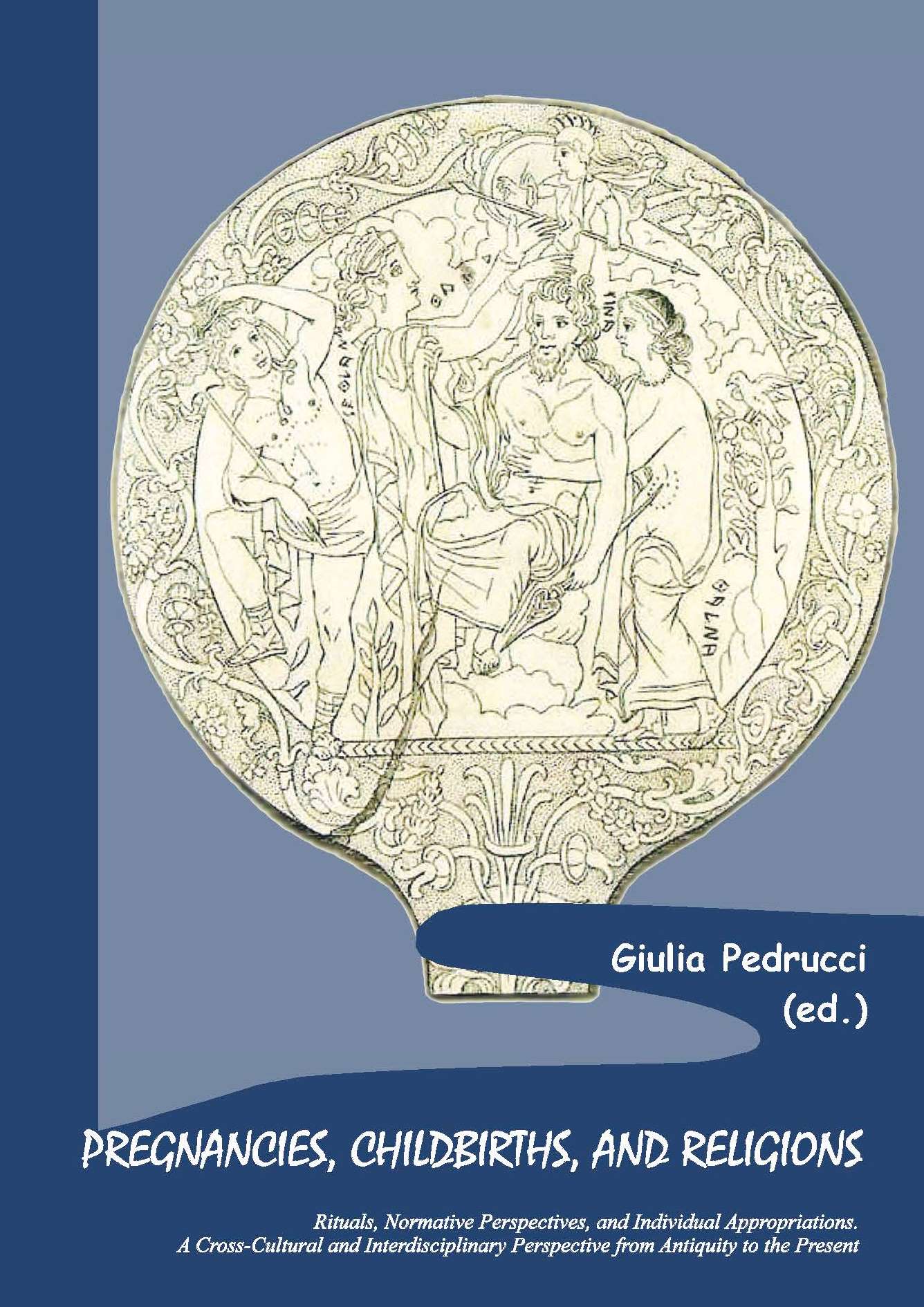PREGNANCIES, CHILDBIRTHS, AND RELIGIONS Rituals, Normative Perspectives, and Individual Appropriations. A Cross-Cultural and Interdisciplinary Perspective from Antiquity to the Present - Sacra publica et privata 10
Max-Weber-Kolleg (University of Erfurt), 31 January-1 February 2019
- Anno: 2020
- Autore/i: Giulia Pedrucci (ed.)
- Catalogo: Scienze e Lettere
- Argomento: Storia delle religioni
- Collana: Sacra publica et privata
- ISBN: 978-88-6687-175-0
- ISSN:
How do religions deal with pregnancy and childbirth? This is the main question we aimed at answering during the International Workshop Pregnancies, Childbirths, and Religions: Rituals, Normative Perspectives, and Individual Appropriations. A Cross-Cultural and Interdisciplinary Perspective from Antiquity to the Present at the Max-Weber-Kolleg (University of Erfurt). The aim is to analyze how religious discourses have described and influenced such natural and strictly female practices. Within a religious discourse, pregnancy can be a divine gift, childbirth can be virginal. Many other questions arose from this: As far as childbirth is concerned, impurity is a central issue; how do/did religions cope with the (perceived) impurity caused by the birth event? How can we explain the different attitudes towards pregnancy and childbirth in the religious discourses? To what extent do (male) religious authorities and sacred texts dictate maternal practices in a normative way? Do they tell women how to get pregnant, what to do during the pregnancy and how to give birth? Do they blame women who cannot or do not want to have children? To what extent do women feel free to transgress without blaming themselves for not being a “good” women and obedient members of a specific religious tradition? In which way can/could women’s decision not to have children or disregard religious rules be perceived as religious individualization and autonomy from social inter-connectedness? Interestingly, in some cultures we can detect forms of “eugenics” via religious means.
INDICE
The Multifold Ways to Intertwin Pregnancies, Childbirths, And Religions. An Introduction
Giulia Pedrucci
FIRST SECTION
BIOLOGICAL PREGNANCIES AND CHILDBIRTHS
GIVING LIFE, FACING DEATH: RELIGIOUS RITUALS TO PROTECT THE MOTHER AND THE BABY DURING PREGNANCIES AND CHILDBIRTHS
Metafore del parto negli scongiuri dell’antica Mesopotamia
Lorenzo Verderame
Getting to the Roots of Eileithyia. Images and Context of Pregnancy in Crete from the Late Minoan III to the Archaic Period
Massimo Cultraro
Pregnancy and Birth in Ancient Greece: A Thick Description
Jan N. Bremmer
Protecting Mother and Child at Birth – Amulets and Prayers in Franconian
Genizot
Rebecca Ullrich
Quels recours en cas de naissances difficiles ? La leçon des ex-voto dans l’Europe catholique (XVIe -XIXe siècles)
Marie-France Morel
PREGNANCIES, CHILDBIRTHS, AND RELIGIONS “AS A (MALE) INSTITUTION”:
HOLY BOOKS, MYTHOLOGICAL NARRATIVES, INFLUENTIAL IMAGES,
AND RELIGIOUS AUTHORITIES
From Garbha Sanskar to Uttam Santati: Hindu Regulatory Frameworks for
Ideal Pregnancy and Childbirth
Sucharita Sarkar
PREGNANCIES, CHILDBIRTHS, AND RELIGIONS AS LIVED FEMALE EXPERIENCE
The Single Mothers’ Experience of Pregnancy and Delivery in Morocco in Connection with Islamic Beliefs: Region of Fez-Meknes as a Case Study
Saddik Darai, Hasna Abbaoui, and Zouhir Adaoui
Impure, Hidden. Orthodox Christian Faith as a Factor Determining the
Perception of Women’s Body
Kaja Kojder
SECOND SECTION
NON-BIOLOGICAL PREGNANCIES AND CHILDBIRTHS:
NEGATION, NEGOTIATION, AND APPROPRIATION OF A BIOLOGICAL
FEMALE EXPERIENCE IN RELIGIOUS NARRATIVES AND SACRED IMAGES
Not of Woman Born: gravidanze maschili e parto cesareo nel mondo greco e romano
Giulia Pedrucci
From Tomb to Womb: Adoption and Mimetic Re-birth in a Golden Leaf from Thurii (A1 Zuntz)
Georgia Petridou
Emanations, Emissions, and Eggs. Divine (Non-)Births in Hindu Mythology – a Commentary on Human and Nonhuman Existence?
Gerrit Lange
Ripristino della verginità come riparazione maniacale: un’interpretazione kleiniana di due miti contenuti nel Mah?bh?rata
Romina Rossi
Giulia Pedrucci is adjunct professor for Religious Studies at the University of Verona. She was Marie Sk?odowska Curie Cofund Fellow at the Max-Weber-Kolleg für kultur- und sozialwissenschaftliche Studien (University of Erfurt).
F.to 17x24, pp. 264, Brossura filo refe



